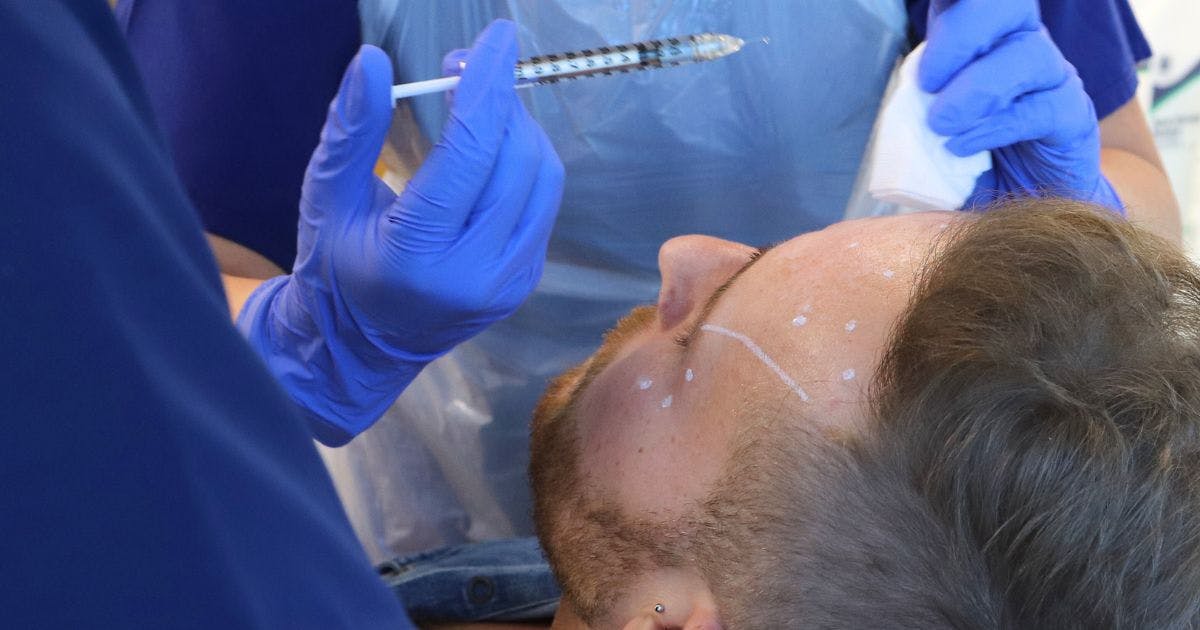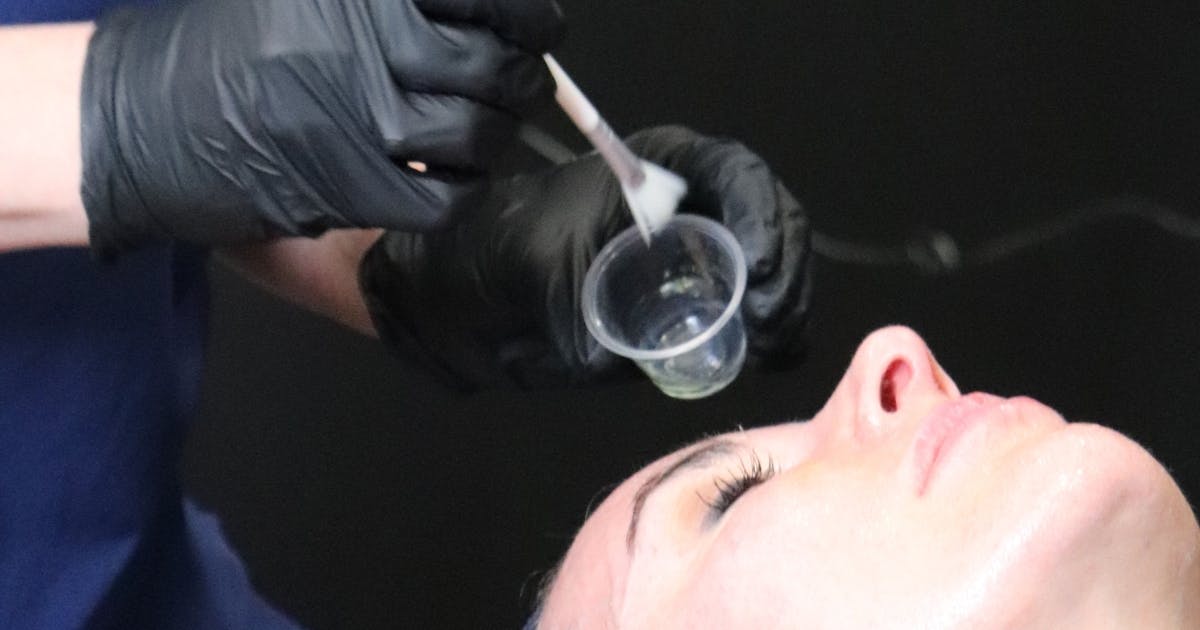UK Aesthetics Regulation: Scotland Launches New Consultation

Finally, we have movement on aesthetics regulation in the UK, as Scotland initiates new - and somewhat controversial - legislation recommendations.
The Scottish Government published its initial proposals for regulating aesthetic procedures on 20th December 2024. This triggered a public consultation which closes on 14th February 2025, which allows anyone to provide feedback.
Similar to England’s ‘RAG-rating’ proposal, Scotland has put forward three categories of aesthetic procedures, with recommendations for each.
These are named Groups 1, 2 and 3:
- Procedures considered the ‘lowest level of risk’ and the least invasive
- Higher risk procedures that are more invasive than Group 1
- The highest risk procedures that are more invasive than both Groups 1 and 2.
Let’s explore what proposals have been made in relation to each of these categories…

Scotland’s aesthetics regulation proposals
The stated aim of these regulatory proposals is ‘to further regulate non-surgical cosmetic procedures to improve client safety’. We have summarised them for you below.
They follow a report from the Scottish Cosmetic Interventions Expert Group (SCIEG) in 2015, which recommended a ‘three-phase approach to the regulation of cosmetic procedures’ in the country.
The first phase of these recommendations was implemented from 1st April 2016. This involved all independent healthcare clinics where services are provided by doctors, dentists, nurses, midwives or ‘dental care professional’ being brought under HIS regulation. Those clinics that offer non-surgical aesthetic procedures were included in this.
Further progress came in 2020 with the launch of a public consultation on aesthetics regulation in Scotland and its 2022 response. This showed that 98 per cent of respondents supported regulating non-surgical cosmetic procedures that ‘pierce or penetrate’ the skin.
SCIEG has convened regularly since 2023, yet legislation has not been forthcoming. In March 2024, Scotland was found to have the 'worst aesthetics regulation' in Europe.
Who can respond to Scotland’s consultation on aesthetics legislation proposals?
Anyone can respond to these proposals, no matter where you are based, and we highly encourage you to do so. The more healthcare professionals who provide their views on aesthetics regulation, the better. Especially those who do so from the perspective of already working in aesthetic medicine and having a solid knowledge of the risks involved in non-surgical procedures.
You can access the online consultation where you can provide feedback, via the government website.
We will share our thoughts on these proposals shortly, however, let’s first examine what is being recommended.
Please note that ‘HIS’ stands for Healthcare Improvement Scotland, which is equivalent to the Care Quality Commission (CQC) in England.
Group 1:
What non-surgical aesthetic procedures are in Group 1?
The Scottish Government advises that the lowest risk, Group 1 procedures ‘will contain those procedures which carry the lowest level of risk, are the least invasive, and which we propose can be safely carried out by a trained and licensed practitioner who is not a healthcare professional.
Group 1 procedures include:
- Microneedling
- Mild chemical peels (those treating the outermost layer of the skin only)
- IPL or LED therapy
- Use of lasers for hair removal or tattoo removal.
Scotland’s proposals for regulating Group 1 aesthetic procedures
It’s proposed that these be carried out either ‘in a licensed premises or HIS regulated setting’. Aesthetic practitioners administering these treatments would be ‘suitably trained’ and licensed but would not need to be a healthcare professional, based on the new recommendations.
‘However the future licensing scheme operates, there will be the opportunity for the Scottish Government to establish standards to reduce risk and improve the safety of procedures. Licences will be issued by a local authority, and officers of the local authority will have powers of enforcement,’ the consultation also notes.
It continues, ‘Local Authorities will agree the form of licenses, fees for licences and arrangements for applications. We propose to give local authorities flexibility about how they treat vehicles/mobile premises’.
The consultation invites respondents to consider whether they agree with the recommendations or whether they disagree, on a treatment-by-treatment basis.
Other options for regulating each treatment in this group include limiting their administration to ‘only HIS regulated settings’ or ‘in a HIS regulated setting and only by an appropriate healthcare professional’.
Additional consultation queries relating to aesthetic practitioners administering Group 1 procedures
Specific Group 1 questions outside those listed above include:
- Do you support or oppose the proposal that the practitioner of a Group 1 procedure operating in a licensed premises should also require a licence?
- Do you support or oppose the proposal that the practitioner of a Group 1 procedure operating in a HIS regulated setting should not require a licence?

Group 2:
What non-surgical aesthetic procedures are in Group 2?
The Group 2 procedures are those ‘which carry a higher level of risk, and are more invasive than those in Group 1’. These include:
- Botulinum toxin for cosmetic purposes
- Filler injections involving up to 2ml of product
- Mesotherapy
- Medium depth chemical peels (those that ‘penetrate and destroy the outer layer of skin fully and penetrate into the next layer or upper dermis’)
- Injections of drugs or other substances ‘for lifestyle or cosmetic purposes’
- Photo rejuvenation
- Radiofrequency treatments
- HIFU (high frequency ultrasound)
- Cryolipolisis (fat reduction).
Proposals for regulation of Group 2 aesthetic procedures in Scotland
The proposal for Group 2 procedures is that these should only be undertaken in a HIS regulated premises. We propose they can be safely carried out by a trained practitioner who is not a healthcare professional, but such practitioners should be supervised by an appropriate healthcare professional.’
Scotland’s consultation asks for you to vote on these recommendations for each of the above treatments. Alternative voting options listed include:
- These procedures ‘can be carried out in a licensed premises or HIS regulated setting’
- They can be carried out ‘only in a HIS regulated setting’
- Group 2 procedures will have to be administered ‘in a HIS regulated setting only by an appropriate healthcare professional’.
Group 3:
Which aesthetics procedures are in Group 3?
Equivalent to England’s proposed ‘Red’ category, Group 3 contains aesthetic procedures with the ‘highest level of risk’. These are treatments the Scottish Government has defined as being more invasive than those in the previous two groups.
Group 3 aesthetic procedures include:
- PRP (Platelet rich plasma treatments), biotherapy or any injections using products derived from the patient’s blood
- ‘Use of dermal fillers for the purposes of augmentation of eg. the breasts and buttocks’
- ‘Injection lipolysis or injections of fat dissolving agents’
- Dermal micro-coring
- Hay fever injections
- ‘Any procedure involving intravenous fluids or drawing and processing bloods for cosmetic or lifestyle purposes, for instance provision of intra venous vitamins and minerals, or intra venous blood oxygenation’
- Deeper chemical peels than listed in Groups 1 and 2
- All laser treatments not covered in Groups 1 and 2
- Thread lifting and cogs
- Carboxytherapy
- Cellulite subcision
- Electrocautery
- Cryotherapy and cryocautery
- All Group 1 and Group 2 procedures ‘where carried out in an intimate area (and not including procedures such as tattooing and skin piercing which are already licenced).
Proposed regulation of Group 3 aesthetic procedures:
The following information has been provided via Scotland’s online consultation:
‘We propose that Group 3 procedures should be restricted so that as well as taking place in a HIS regulated setting, they should also be undertaken by an appropriate healthcare professional. We have not currently defined ‘appropriate’ in terms of the type of healthcare professional that should be included; we are seeking views in this consultation on whether only specific healthcare professionals should be able to carry out Group 3 procedures, or whether the procedures should be undertaken by any healthcare professional who is suitably trained or qualified, and working within their scope of practice.
‘Not all GP practices, dental practices or community pharmacies where private services are offered currently have to register with HIS. We propose that any setting offering NSCPs will be required to register with HIS, even if they wouldn’t otherwise be required to.’

Defining ‘supervision’ of non-medic aesthetic practitioners
It’s perhaps somewhat surprising that the Scottish Government has proposed non-medics being able to practice aesthetics beyond minimal-risk skin treatments.
The proposals see this cohort being able to offer aesthetic treatments in Group 1 unsupervised and Group 2 treatments - including botox and fillers - when supervised by an appropriate healthcare professional. For this reason, it’s necessary to define what is meant by ‘supervision’ as well as ‘appropriate’.
The consultation asks for responses to the following questions on this topic:
‘Do you agree or disagree that the healthcare professional supervising a Group 2 procedure should:
- Conduct the / any initial consultation(s) with the client?
- Prescribe any medications (eg. Botox, lidocaine) required during the procedure, or required for the management of any complications that arise?
- Remain available on site for the duration of any procedure?
- Be responsible for ensuring the practitioner is suitably trained for the procedure?
- Be responsible for ensuring the procedure will be undertaken safely?
- Be themselves suitably trained and qualified in the procedure being undertaken?’
Who should be allowed to administer the most high-risk aesthetic procedures in Scotland?
Its recommendations are that Group 3 procedures be carried out by an appropriate healthcare professional within a HIS regulated setting, yet the consultation poses the following additional statements. Respondents are asked to what extent they agree with each.
- ‘These procedures should be undertaken by a suitably trained and qualified healthcare professional working within their scope of practice, but not otherwise be limited’
- ‘These procedures should only be undertaken by certain healthcare professionals please see list in next question and tick all that apply’
The list of healthcare professionals is:
- Medical practitioners (Doctors)
- Dental practitioners
- Dental care professionals
- Registered nurses
- Registered midwives
- Registered pharmacists
- Registered pharmacy technicians.
Additional patient safety measures covered in the consultation
The consultation also seeks input on the following questions, related to patient safety:
‘To what extent do you agree or disagree that the Scottish Government should establish:
- Standards of hygiene and health and safety for licensed premises?
- Standards of training and qualification for licensed practitioners?
- Mandatory insurance and indemnity to compensate clients who suffer harm as a result of negligence or malpractice?’
You can vote on these choosing between:
- Strongly agree
- Agree
- Neither agree nor disagree
- Disagree
- Strongly disagree
- Don’t know.
With the same repose options, it also asks, ‘To what extent do you agree or disagree that local authority officers should have powers of inspection and enforcement, including:
- The removing of a licence from premises or practitioners who cannot demonstrate compliance with standards established by the Scottish Government?
- Barring individuals from holding a licence if they are associated with serious or repeated non-compliance with the standards established by the Scottish Government?’
In relation to whether mobile aesthetics services operating from a vehicle should be permitted in Scotland, the consultation asks, ‘Which of the following statements do you agree with in relation to whether a vehicle can receive a licence as a premises?
- Local authorities should have discretion to decide whether a vehicle can receive a licence as a premises
- Vehicles should be eligible for a licence in all local authorities
- Vehicles should not be eligible for a licence in any local authority
- I don’t know’.
With regards HIS registration, the consultation asks if ‘the following settings should be required to register with Healthcare Improvement Scotland if they are offering non-surgical cosmetic procedures?’
- GP practices
- Dental practices
- Community pharmacies.
As Scotland, unlike England, currently has no minimum age requirements for purely cosmetic aesthetic treatments, it asks for people’s thoughts on options the government is considering, here. These are:
- An absolute age limit where children under a certain age would not be able to receive aesthetic treatments
- Restrictions for treatments in Groups 1 and 2 limiting their administration to ‘an appropriate healthcare professional, making it the responsibility of the healthcare professional to ensure that the child or young person can safely undertake the procedure and is capable of giving informed consent’
- ‘Group 3 NSCPs will already be restricted to being carried out only by an appropriate healthcare professional’.
There is then the option to vote for what age groups you think each category of treatments should be restricted to. For example, patients aged 18 and over, aged 16 and over, or ‘aged 16 and 17 who have parental / guardian’s consent, or otherwise to clients aged 18 and over’, or whether there should be no age requirements.

Further aspects considered as part of aesthetics regulation
The consultation also includes questions pertaining to how the introduction of a licensing scheme and aesthetics regulation for the non-surgical sector may affect anyone based on:
- Protected characteristics such as gender, race, age or disability
- Inequalities, especially related to individuals’ financial situations
- Respecting and protecting the rights of children and young people under the UN Convention on the Rights of the Child.
Why you should respond to Scotland’s consultation on aesthetics regulation
Whilst all sensible attempts to improve patient safety and regulate our sector are welcomed, these proposals are not where we believe they need to be. The aspects around cosmetic injectables potentially being carried out by non-medics under - as yet undefined - ‘supervision’ is of particular concern.
We believe that it is essential that the issue of on-site supervision by appropriately trained and experienced regulated healthcare professionals is reinforced further, if it's decided that 'supervision' will be introduced. Whilst we firmly believe that cosmetic injectables should be restricted to appropriately trained and licensed healthcare professionals, should Scotland insist on allowing non-medics to practice Group 2 treatments, we would want to see ‘line of sight’ supervision by an appropriate and experienced healthcare professional mandated.
Although they’re a good starting point, more expert input from medical professionals in the field is clearly required to help shape future aesthetics regulation. This is why we urge you to get involved and spend a few minutes completing the consultation form before 14th February 2025.
You do not need to be from or based in Scotland to respond to the online consultation. It’s mostly multiple choice questions and you can choose whether you consent to your responses being published.
As you likely know, Harley Academy and our Ofqual-regulated Level 7 aesthetics qualification were born from a desire to set the bar for safe, evidence-based aesthetic practice in an unregulated industry. We remain committed to this mission and it’s at the heart of everything we do as a business.
It’s our belief that it is truly of great importance that we all push for stringent safety protocols and legal protections to enhance our practice and preserve the medical aspect of our specialty. After all, aesthetic medicine is medicine.
As before, we’ll be sharing our full thoughts on these proposals with you shortly. In the meantime, we hope this action spurs England’s Department of Health & Social Care into action, pressing ahead with its own consultation responses and establishing the frameworks required for the expected aesthetics licensing scheme.
We look forward to seeing more forward momentum on UK aesthetics regulation throughout 2025.
All information correct at the time of publication
Download our full prospectus
Browse all our injectables, dermal fillers and cosmetic dermatology courses in one document
By submitting this form, you agree to receive marketing about our products, events, promotions and exclusive content. Consent is not a condition of purchase, and no purchase is necessary. Message frequency varies. View our Privacy Policy and Terms & Conditions
Attend our FREE open evening
If you're not sure which course is right for you, let us help
Join us online or in-person at our free open evening to learn more
Our Partners














STAY INFORMED
Sign up to receive industry news, careers advice, special offers and information on Harley Academy courses and services

